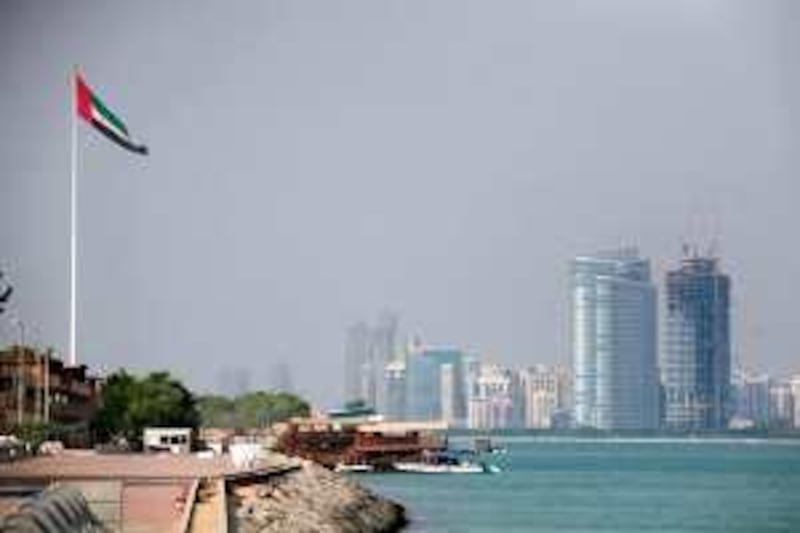The fallout from the debt woes of Dubai spread to the capital as Moody's Investors Service placed seven of the most prominent Abu Dhabi companies on review for possible downgrade. The review covers the debt and issuer ratings of the Abu Dhabi National Energy Company (Taqa), Mubadala Development, the Tourism Development and Investment Company (TDIC), the International Petroleum Investment Company (IPIC), Aldar Properties, the issuer rating of the Emirates Telecommunications Company (Etisalat) and the issuer ratings and the long-term debt rating of Dolphin Energy.
Moody's said it was no longer certain whether it could assume blanket government support for these entities. It said the review was triggered by "a need to re-validate and possibly reconsider our support assumptions following Dubai's recent decision to explicitly segregate its direct obligations from those of its [government related issuers]." It said it would make only "moderate adjustments - should support assumptions remain high. However, it could be multi-notch in particular where baseline credit assessments are low."
Two weeks ago, Dubai asked creditors to accept a six-month delay in debt repayments while it restructured Dubai World, a key holding company. Government officials have since asserted that the Government did not guarantee the debts of Dubai World. This rattled investors and ratings agencies who had assumed government support. The Moody's warning emerged after another day of heavy selling on Dubai and Abu Dhabi stock markets. Investors fear that the emirate's debt problems may not be limited to Dubai World. Dubai's fall marked a new nine-month low.
The Dubai Financial Market lost 6.5 per cent yesterday, bringing its retreat to 27 per cent since Dubai World's announcement. "Investors fear Dubai Holding may also be squeezed on cash flow," said Ian Munro, the head of research at MAC Capital, an investment banking boutique. A unit of Dubai Holding has sold a 7 per cent stake in EFG Hermes, Egyptian investment bank, for US$120 million (Dh440.7m), sources familiar with the matter said yesterday.
The Abu Dhabi Securities Exchange General Index fell 2.8 per cent yesterday as investors sold banks such as First Gulf Bank and Abu Dhabi Commercial Bank on fears of a heavy exposure to Dubai. Emaar, DFM and Arabtec once again lost the maximum 10 per cent, which triggers an automatic trading halt. Emaar, which plans to inaugurate what it says is the world's largest tower next month, cancelled plans to merge with three property units of Dubai Holding. The merger was meant to bring Dubai Properties, Sama Dubai and Tatweer, which have been hard hit by declining property prices, under the wing of the larger and more profitable Emaar.
Emaar said the proposed merger plan was no longer attractive. "The results of studies have confirmed that the merger plan that was proposed doesn't make economic sense for such a move at the time being," Emaar said. Roy Cherry, the property analyst at Shuaa Capital said, "This comes as excellent news to shareholders who had concerns about potential dilution of their shares. It also proves that Emaar has the ability to say no to the Government."
Investors urgently needed more clarity regarding Dubai's debt and the extent of the exposure to halt the sell-off, said Mr Munro. "Investors are assuming the worst in regards to credit market payments." Morgan Stanley warned on Tuesday that debt restructuring by state-run companies could almost double to $46.7 billion. Remarks by Sheikh Khalifa, the President of the UAE, that the economy was "solid" and able to deal with the fallout failed to soothe investors.
"We have been able to contain the negative impact of the [global] crisis," Sheikh Khalifa told Kuwait's state-run news agency in an interview. "We have the ability and the will to complete work in that direction - in order to remove all hurdles that impede the continuance of the development process and its thrust." Speculation that the Dubai Government may be forced to redeem $2bn in debt for the Dubai Electricity and Water Authority (DEWA) on Monday added to fears that Dubai World's debt problems were spreading to other parts of the economy.
A spokeswoman for DEWA rejected the possibility. The $2bn would be an early repayment triggered by credit downgrades. DEWA raised the money in 2007. Several ratings agencies have downgraded DEWA's note programme to below "A minus", which should trigger the early repayment. "To our understanding, the repayment has been brought forward to December 14," said Christian Esters, an analyst for structured products at Standard & Poor's in Frankfurt.
The date would coincide with a $4bn repayment by Nakheel, a property development arm of Dubai World, which sought a "standstill" for $26 billion debt two weeks ago. uharnischfeger@thenational.ae





